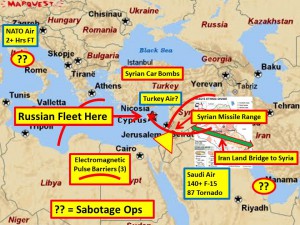
Syria- Russia-European Union: The military-technical cooperation contracts between Russia and Syria have not undergone changes, said Syrian Ambassador to Russia Riyad Haddad. “All agreements signed between Syria and Russia are being implemented without any changes made,” he told the press on Monday.
Haddad was commenting on reports claiming that Russia has frozen S-300 missile systems' shipments to Syria at Israel's request.
Russian Deputy Foreign Minister Sergei Ryabkov said on Tuesday, “We consider these supplies a stabilizing factor and believe such steps will deter some hotheads from considering scenarios that would turn the conflict international with the involvement of outside forces.”
Comment: The timing of the latest Syrian and Russian statements corresponds to the European Union decision to discontinue the ban on weapons aid for the Syrian opposition.
The Russian public statements are not aimed at deterring Israeli attacks, though the Russians said those attacks should halt. According to Israeli press, Israeli experts judge it will take at least a year for the system to be installed; personnel trained and for it to become operational. The new air defense installations will be added to the target lists for the Israeli Air Force.
The Russian statements are aimed at the US and NATO. Various Russian leaders have declared Russia will not allow Syria to go the path of Libya, in which NATO intervention began with a no-fly zone. The announcement is a public statement of commitment of support for Syria that will make it difficult for NATO members to generate the domestic political backing to establish a no-fly zone over Syria. The long war in Afghanistan has made the NATO electorates weary of fighting.
This Russian announcement also reduces the prospects for substantive progress at a US-Russian brokered negotiation sometime in June. No basis for trust or compromise exists among the parties. Russia and Syria can present a united position, but the Syrian opposition entities cannot. US and European goals are not congruent with each other and not with Saudi and Qatari interests.
The US intention apparently is to start a negotiating process, in the expectation that process will lead to substance. After the European Union vote, which in essence permits European states to provide weapons to the Syrian opposition entities, the backdrop of any discussion will be the EU action whose intended effect would be to escalate the fighting. That would seem to remove from the agenda any serious discussion of ways to stop the killing.



